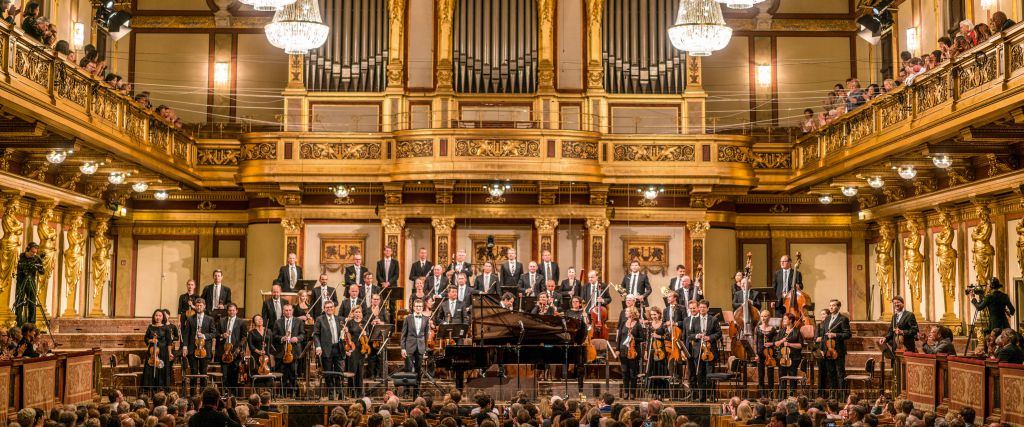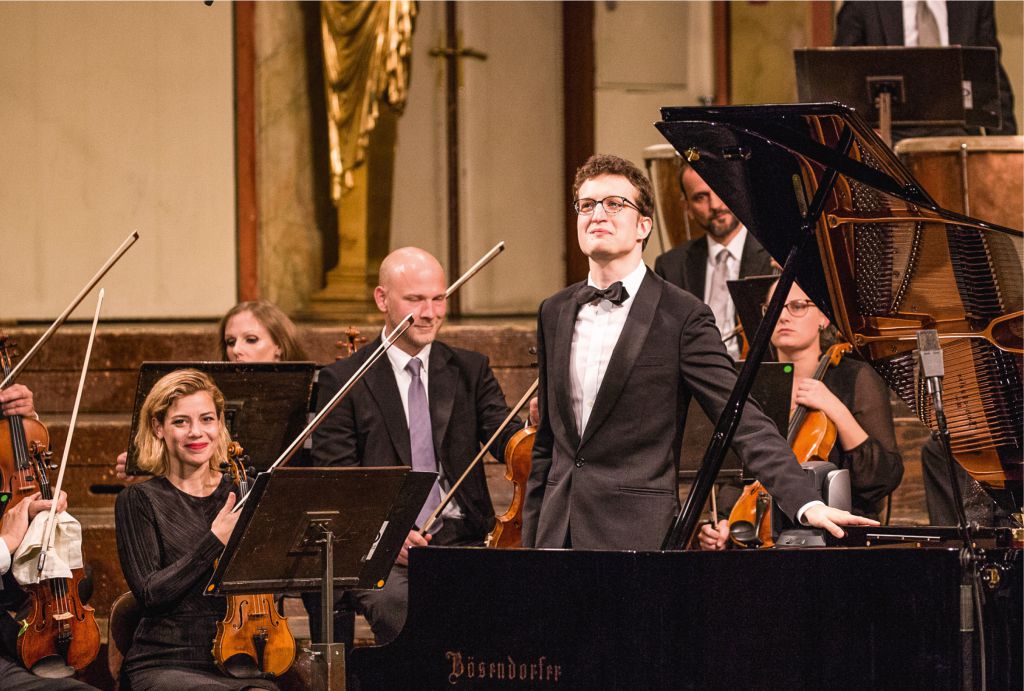The mdw’s 16th International Beethoven Piano Competition – just in time for the composer’s 250th birthday
At this point, things are already well underway. The application period has passed, as have the initial live screening auditions. This preliminary phase of the competition, which takes place every four years, is exciting and quite important; after all, the present competition’s high-calibre jury had to choose among over 230 applicants in order to arrive at the 32 pianists whom they ultimately admitted to the main competition. This main phase will be kicked off by an evening opening event in the mdw’s Joseph Haydn-Saal and conclude with the competition’s grand finale in the Golden Hall of the Vienna Musikverein on 14 May.

Internationality
It’s not just the jury that’s international; the entire competition is likewise an international affair. Auditions are held in New York, Tokyo, Shanghai, Berlin, and Vienna, although most candidates who audition in person do so directly in Vienna. And just as many applications arrive as video files on DVDs or thumb drives—a modern option that’s being chosen by more and more young pianists worldwide.
Jan Jiracek von Arnim, artistic director and organiser of what is Austria’s oldest and most important international piano competition, is quick to wax enthusiastic: “I think it’s great that so many young people are interested in our competition and in taking a deep dive into Beethoven’s works, because being a Beethoven-only competition really is kind of exceptional. As far as I’m aware, the only other major event like this is the Chopin Competition in Warsaw.”
A Clear Focus

The piano oeuvre of Ludwig van Beethoven is quite vast, numbering 32 piano sonatas, five piano concertos, and several sets of variations as well as bagatelles, fantasies, and dances. And the competition approaches this repertoire with great nuance and care, dividing it into six groups and assigning these to the preliminary round and/or to the individual rounds of the main competition in order to achieve optimum comparability among the participants.
Why would a competition limit itself to just one composer, one might ask, no matter how prominent and pioneering he may have been? The artistic director points to this competition’s long tradition: “It was in 1958 that the International Beethoven Piano Competition was created at the Academy of Music and Performing Arts, as we were called at the time. Even back then, Vienna was already viewed as a center for the interpretation of Beethoven’s works, with the Academy’s Piano Department viewed as a worldwide leader in terms of upholding Beethoven performing traditions. This goes back to Beethoven himself, who moved to Vienna at age 22, worked here as a composer, and also spent many years teaching here. One of his students was Carl Czerny, who published Über den richtigen Vortrag der sämtlichen Beethoven’schen Werke für das Piano allein [On the Proper Performance of all Beethoven’s Works for Piano] and passed on his knowledge to over 500 students of his own, giving rise to a Viennese tradition that features a special kind of legato playing, sparing use of the pedals, the selection of appropriate tempi, and much more,” explains Jan Jiracek von Arnim.
Values as a Challenge
In order to fully understand this focus on Beethoven, we need to take another step, back behind the tradition, to examine Beethoven’s development as a composer and as a personality. Because beginning in 1802, he left the stylistically formative paths along which he’d been guided by Joseph Haydn and began charting a new course—as he asserted in a note to his publisher Gottfried Härtel, writing that the two sets of variations he was offering were “both worked out in quite a new manner, and each in a separate and different way.” And further: “I myself can assure you that in both these works the method is quite new so far as I am concerned”. This alludes to a turning point that can be attributed to how Beethoven, as a composer, not only had new pianos available to him but quite generally knew many freedoms. On this, Jiracek adds: “It’s something quite special about Beethoven, how he ultimately broke through all the barriers. The Hammerklavier sonata, for instance, was something that the people of his day really no longer understood, but he didn’t care. He was a free individual and not dependent on a patron. He could decide freely what he was going to do and how he was going to write.”
It’s for this reason that the competition’s artistic director agrees with the following words by the Swiss pianist and music educator Edwin Fischer: “When studying Beethoven’s piano works, one runs into difficulties, questions, and problems, and dealing with these is not just part of becoming a pianist, but also part of the musician’s overall development as an artist and even as a human being.” Interpreting this philosophically, one could say that the values lived out by Beethoven personally and artistically as a free spirit and a composer need to be called upon when interpreting his works, that they might be felt throughout the concert hall.
Networking and Partners
Last but not least, the International Beethoven Piano Competition is of central significance to the pianistic community as a whole. For when young, highly talented, and artistically advanced pianists, internationally renowned and experienced jury members, and an interested and knowledgeable audience come together, what happens is of inestimable value in terms of networking and mutual exchange. The team behind the competition, in turn, treasures its work together with first-class partners such as the Vienna Musikverein, the halls of which play host to the second and final rounds; Camerata Salzburg, which will accompany the final concert under the baton of Andrés Orozco-Estrada; and piano manufacturer Bösendorfer, which will donate a Model 200 concert grand as the first prize. Also greatly appreciated is the support provided by institutions abroad such as the University of the Arts Berlin and other universities of music as well as by the sponsorship of various individuals and private foundations.
All relevant dates and information on the competition can be found at beethoven-comp.at, and the various rounds of the main competition can be streamed via the mdwMediathek.
